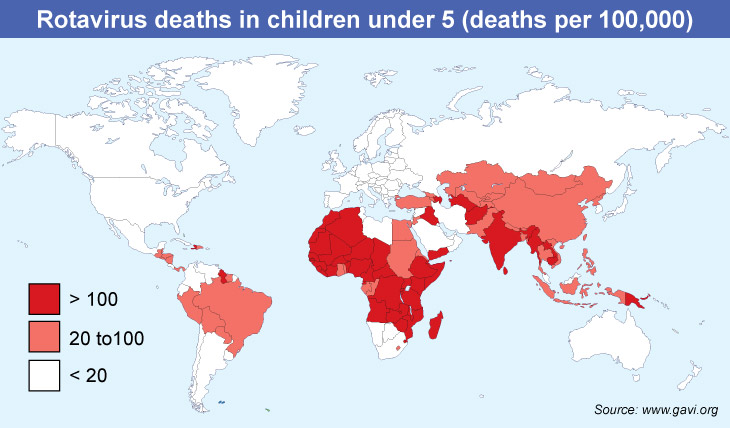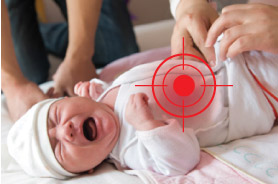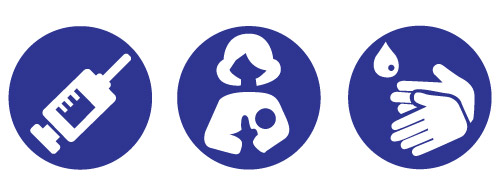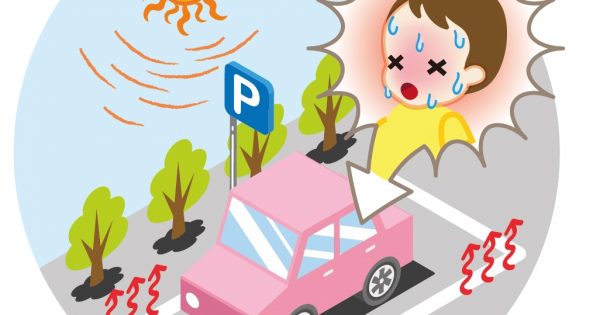Diarrhoea refers to the passage of loose or watery stools or an increased frequency of stool. It can be of sudden onset and lasting for less than two weeks (acute) or persistent (chronic). Acute diarrhoea is a common cause of child death and illness in many developing countries.
According to the World Health Organization and UNICEF:
- Every year, two billion diarrhoeal disease cases are recorded globally.
- Diarrhoeal disease is the one of the leading causes of death in children under five despite being both preventable and treatable.
- Approximately 760 thousand children younger than five years of age die from diarrhoeal diseases each year.
- Approximately 78% of these deaths occur in the Africa and South- East Asia.
- Each child under five years of age experiences an average of three annual episodes of acute diarrhoea.

Non-infectious causes of acute diarrhoea rarely occur in children. It is the infection of the gut (termed gastroenteritis) which is the most common cause.
- In most cases of infective diarrhoea, rotavirus or adenovirus is the underlying culprit.
- Food poisoning can cause diarrhoea too. Germs like Salmonella and E. coli and even parasites can cause food poisoning.
- In countries with poor sanitation, water sources contaminated by bacteria is another common cause of infective diarrhoea.
What can happen?
Obvious symptoms that accompany diarrhoea include abdominal pain and stomach discomfort sometimes fever or vomiting may follow. Children who suffer acute diarrhoea whether from viral or bacterial infection may sometimes also become dehydrated.

Time to See the Doctor
Most children with acute diarrhoea have mild symptoms which get better after a few days. However, you should seek medical advice:
- If your child is ≤6 months old.
- If your child has an underlying medical condition (e.g. heart or kidney problems, history of premature birth).
- It is common to have a fever during a diarrhoeal episode. However, persistent high fever in young children should warrant a proper assessment by a doctor.
- If your child appears lethargic or confused (sign of severe dehydration).
- If your child has been vomitting.
- If there is blood in their stool or vomit.
- If your child has severe stomach/abdominal pain.
Treating Your Child
The main component of the treatment of acute diarrhoea is the prevention of dehydration by fluid and electrolyte replacement (e.g. oral rehydration solutions [ORS]). For a vomiting child, ORS has to be given in small bouts each time. In infants, breastfeeding or formula feeding should be continued as long as the child can tolerate it. There is also no concrete evidence to support routine switch to lactose free formula or soy formula during diarrhoeal episodes. If the child is unable to maintain adequate fluid intake, he or she may need intravenous fluid replacement. Regardless, the doctor will decide on the best treatment option for your child.
Protecting Others from Infection
If your child has been diagnosed as having infectious acute diarrhoea, you can help protect other family members from getting infected by:
- making sure your child washes his/her hands after using the toilet
- keeping your child in quarantine away from other family members
- using separate eating utensils for your child
- washing your hands after touching your child, or any of his/her stuff
- separately washing your child’s laundry with hot water
- using separate wash cloth to clean your baby after diaper changes
- washing your hands thoroughly after each diaper change
- cleaning the toilet as frequently as you can
Prevention strategies may include:

- Rotavirus has been recognized as the leading cause of severe acute watery diarrhoea. Rotavirus vaccine is highly efficacious in preventing rotavirus gastroenteritis and should be considered as a part of prevention of rotavirus diarrhoea in Malaysian children.
- Exclusively breastfeed your child for the first six month of his/her life and continued until they’re two years old with supplementary feeding.
- Teach him/her proper personal hygiene, use safe drinking water and improve your child’s environmental cleanliness.
In general, acute diarrhoea is a self-limiting condition and all that is needed is to ensure affected children are getting adequate fluid to prevent dehydration.






Comments